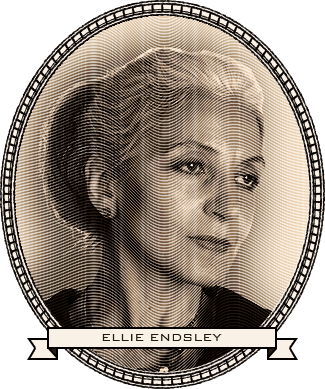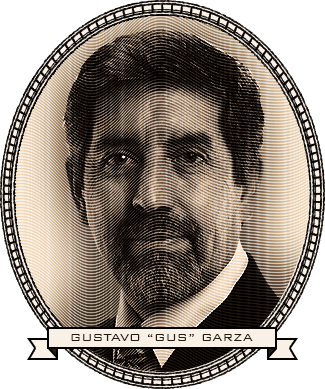March 19th, 2014
Episode 6: Annette Novella
The door to Ellie Endsley’s office is closed. Her chair is turned toward a 52-inch touch-panel display mounted to her wall – a communication tool provided by her attorney and friend, Francisco Orozco. Orozco is a long-time political operative and attorney who specializes in protecting clients who operate in the legislative arena.
The sound on the display is muted, but Endsley can see Orozco helping another client, who, like Endsley, is connected to Orozco via a touch-screen display.
The interactive displays are loaned, free of charge, to select customers of the law firm of Orozco, McCullough and Stein. Orozco is surrounded by four displays, and while he works with Endsley, the other displays are connected to other clients (although the field of vision on Endsley’s screen is limited to protect the identities of others seeking Orozco’s counsel).
Endsley wants to talk to Orozco about several issues, but her top priority is discussing the unexpected call that she’d received from Gonzo Garza the day before.
The Speaker is offering Endsley a contribution from one of the Speaker’s many PACs. The Speaker’s team wants Endsley to put together a new, online tool designed to help educate her audience about tactics to protect themselves from doxxing.
Gonzo told Endsley that state Rep. Ronnie White (one of the Speaker’s key lieutenants) is engaged in a primary battle that he just might lose. The Speaker wants to help by investing in some special assistance.
Within White’s district, polling reveals significant concern among the electorate regarding their right to privacy online. While the state doesn’t have the authority to do much about the methods with which people around the world handle Texans’ personal information, Rep. White is campaigning on the issue. The Speaker’s team thinks that putting a credible, 3rd party brand on the issue, like Independents Can, will help White’s campaign.
Endsley is excited by the idea. She likes the project, and she likes that she can put the project together for less money than they are offering her. She is always looking for extra revenue to fund her organization.
But Endsley suspects it’s not a coincidence that this offer from the Speaker is coming at a time when James Carlos Cates’ campaign is starting to gain momentum. While Endsley cannot imagine how the Speaker would know that she is trying to help Cates, she recognizes that she should keep her secrets out of the digital space, or she is risking exposure. She and Cate have now communicated dozens of times through various channels, any one of which might be compromised in some way. As one of Endsley’s supporters likes to say, “Either talk on-the-record, or shut your fucking mouth.”
Even if the Speaker’s team does not know what’s happening between Endsley and Cates, they certainly know that, as an independent candidate, he is likely to seek help from Endsley at one time or another.
“Is the Speaker trying to buy me, or at the very least, sideline me?” Endsley wonders.
She looks at Orozco again, but he shows no signs of turning his attention to her. She is a little frustrated, but she knows that these group sessions cost 1/3 of the rate she would normally pay. In exchange, she has to agree to pay per hour of connection, giving up the accountability of regularly-priced hours that are meticulously tracked in fifteen minute increments. The unique arrangement helps her keep costs down, while allowing Orozco to make more money per hour.
So far, the group arrangement has worked well for Endsley and Orozco, but today she is more impatient than usual. She can smell the Speaker’s money, and she wants to know — now — what are the potential costs and liabilities of accepting the arrangement that Gonzo proposed.
“There are no strings attached,” Gonzo told her, but Endsley has enough experience to know that when someone says there are no strings attached, it can be a warning sign of strings, tied discreetly, just out of sight.
Looking for a distraction, Endsley turns to the monitor to her right, where she is engaged in an online discussion about a young author’s new work of fiction.
Endsley has lots of throwaway identities online, but whenever she is talking about literature in a public forum, she always uses one of her favorite personas, Annette Novella.
She reads over the comments that were made since she last looked at the discussion twenty minutes earlier, and she responds to a comment calling the author’s depiction of a young girl’s death “beautifully sad”.
“When we are young,” Endsley writes in response, “it is still easy to see beauty in the sadness of death. But, as we age, some of us find that the beauty was something our young hearts inserted. There is nothing about death that is beautiful.”
Endsley watches as the community up-votes and down-votes her comment. It all happens in real time, and her monitor displays a pixelated representation of the responses: the up-votes and down-votes are depicted as battling monsters growing and shrinking, depending on the number of votes each monster receives.
The monsters are a custom add-on that she commissioned a digital foundry to design and build. Every time she sees the monsters measuring the audience’s responses, it helps her remember the reality of disagreeing with people in the faceless, sometimes vicious world of the Internet.
Endsley started experimenting with throw-away identities when she was in grad school, during the 50th Anniversary of the passage of the Civil Rights Act of 1964. She had just penned a commentary on the state of civil rights in Texas, which was printed by the Texas Tribune.
Endsley’s commentary in the Tribune included discussion about the rights of immigrants, equality for the LGBT community, and the discriminatory impact of our drug laws on minorities – especially those who suffer from addiction-related substance abuse.
While the commentary was well received by many people, twice as many readers hated some or all of what she had to say. The things they said to her – and the invasive ways in which they delivered their aggressive, hate-filled responses – had frightened her.
That year, starting with the creation of Annette Novella, Endsley began limiting the use of her name and her brand when interacting online.
She knows that if someone tries hard enough, they can connect Endsley to her noms de plume. But she knows that she has to take some risks to accomplish her goals, and she feels comforted by the fact that there are a few layers of anonymity between her and the strangers online with whom she sometimes shares complex, emotion-firing ideas.
“Sorry for the wait, Ellie,” Orozco says suddenly, dragging Endsley back from her fascination with the monsters. “My system pulled a lot of relevant media, which you should have in the shared media screen now. My assistant also put together a memo on my thoughts at this point. Why don’t you review that document; it should be first in the list of files. You let me know when you are ready to discuss.”
Orozco waits for less than two seconds, giving Ellie the chance to interject a question, then her audio is once again muted, and he turns to another screen.
Endsley closes her eyes and takes a deep breath – in through her nose, and out through her mouth. Then she turns off the display to her right, setting Annette Novella aside for a moment, so she can focus on Orozco’s memo.
“All right,” Endsley thinks as she opens the file. “Let’s see what kind of hand I’m playing with.”













Comments
COMMENT POLICY
The Independent Candidate is pleased to include your comments and observations about this story. We encourage lively debate on the issues of the day, but we ask that you refrain from using profanity or other offensive speech, engaging in personal attacks or name-calling, or posting advertising. To comment, you must be a registered user of The Independent Candidate, and your user name will be displayed. Thank you for sharing your thoughts. We're here to serve.
You must be logged in to leave a comment.
Login | Register